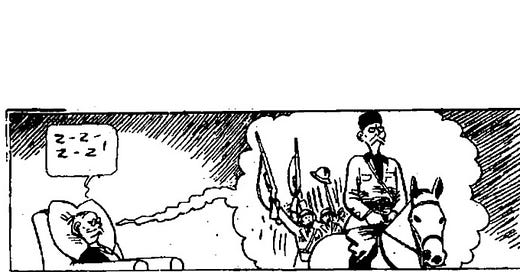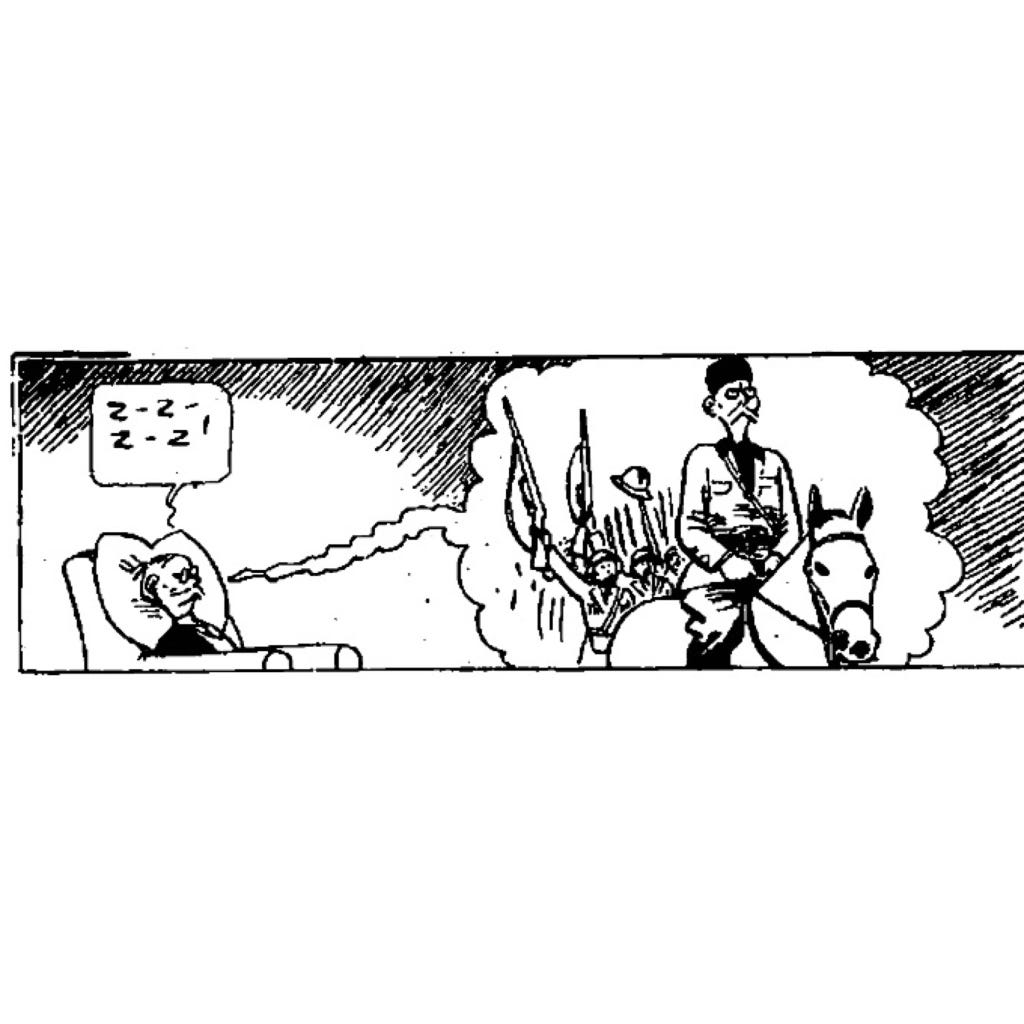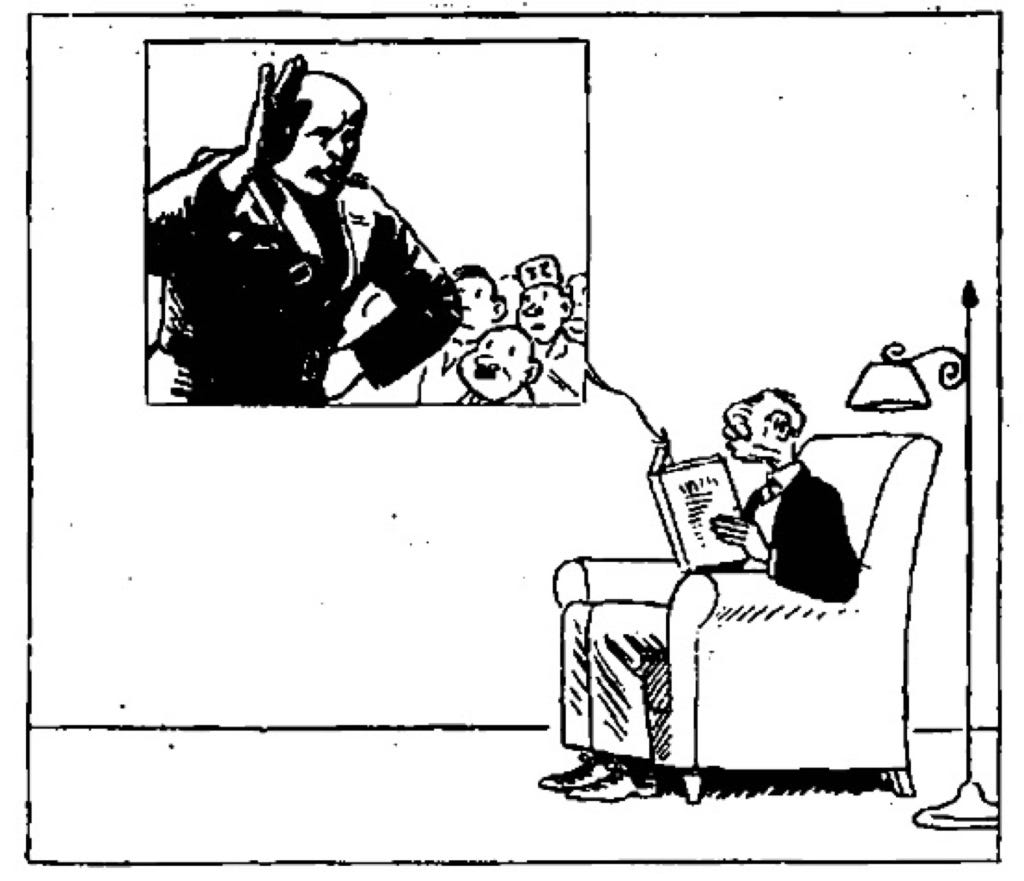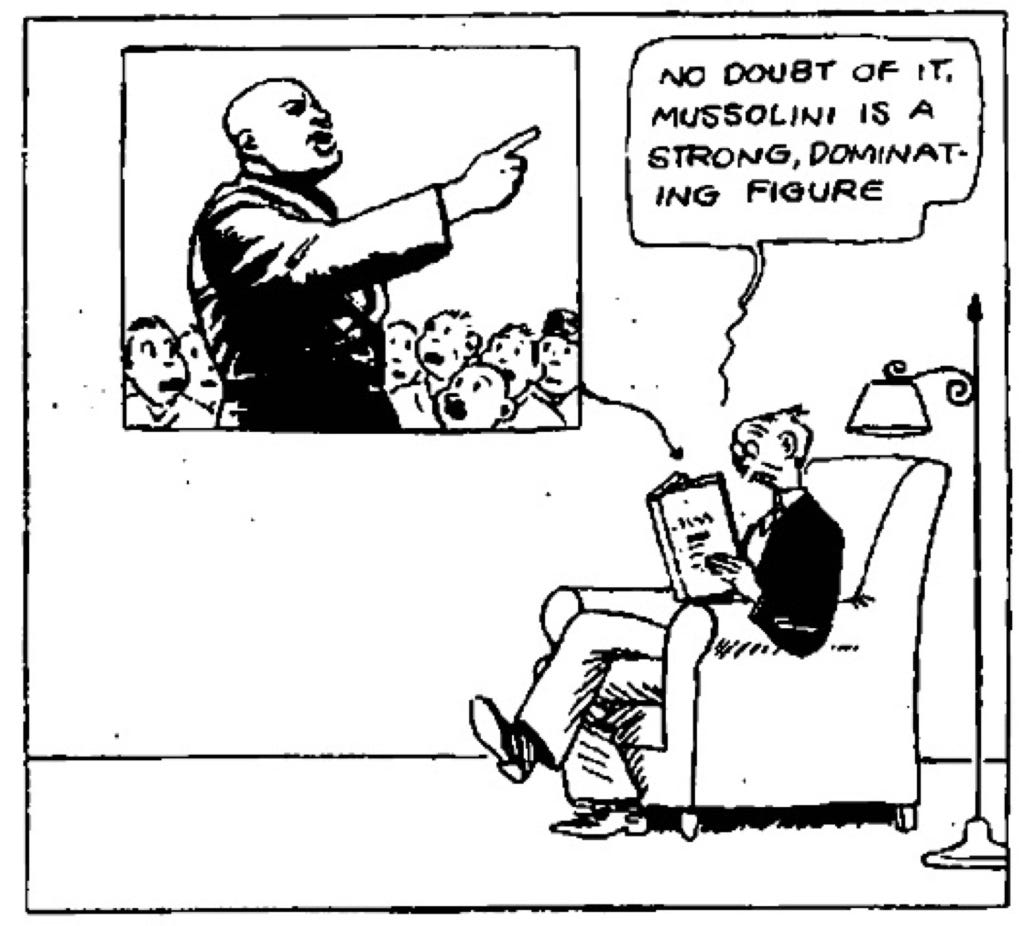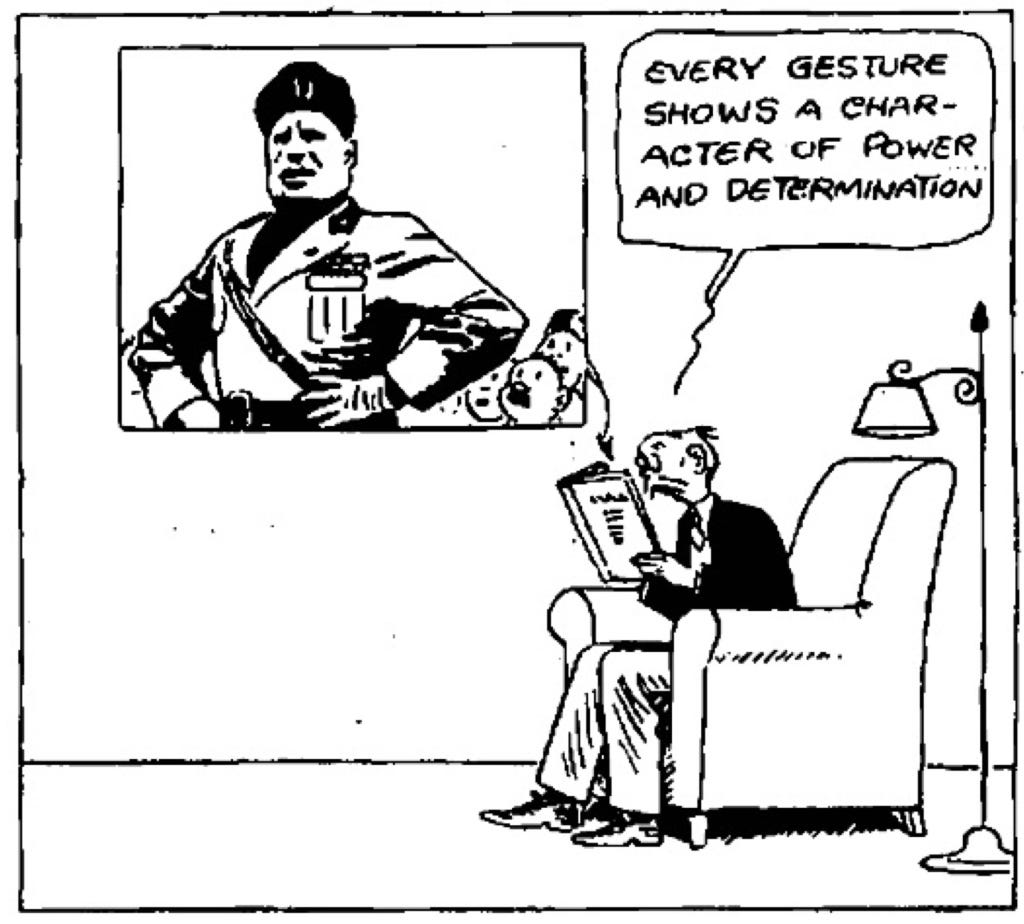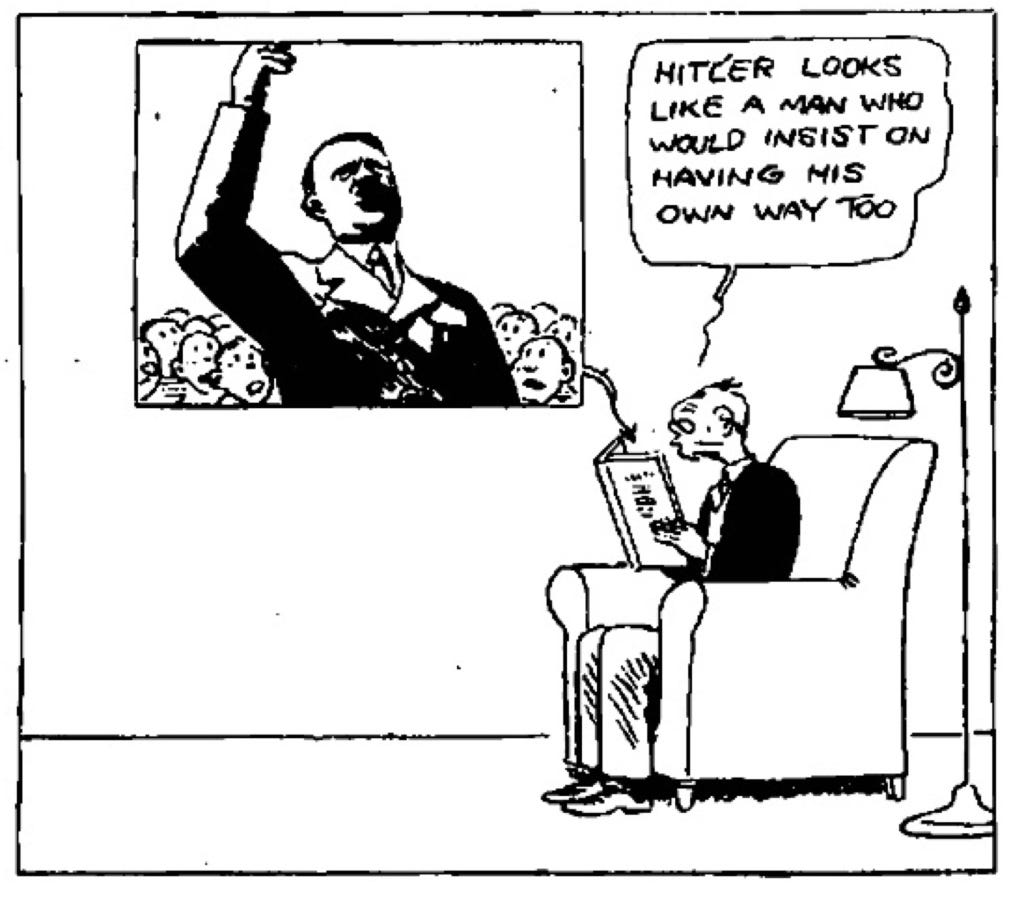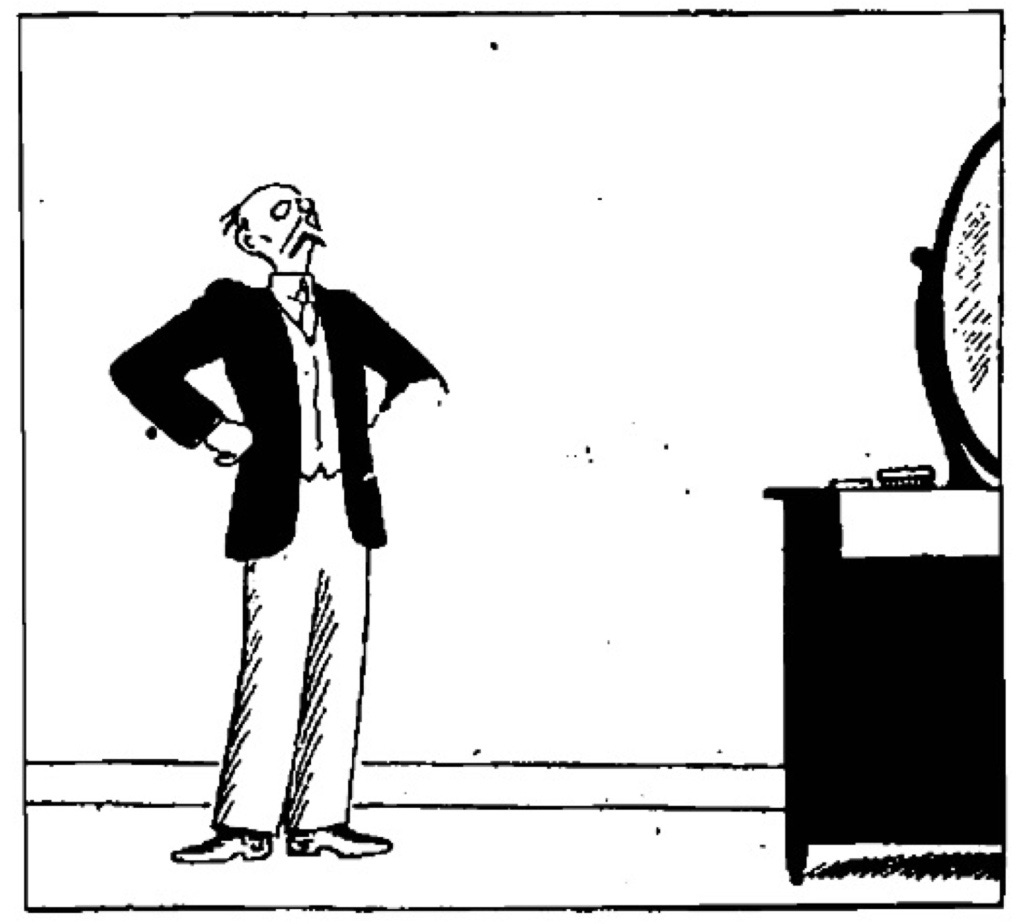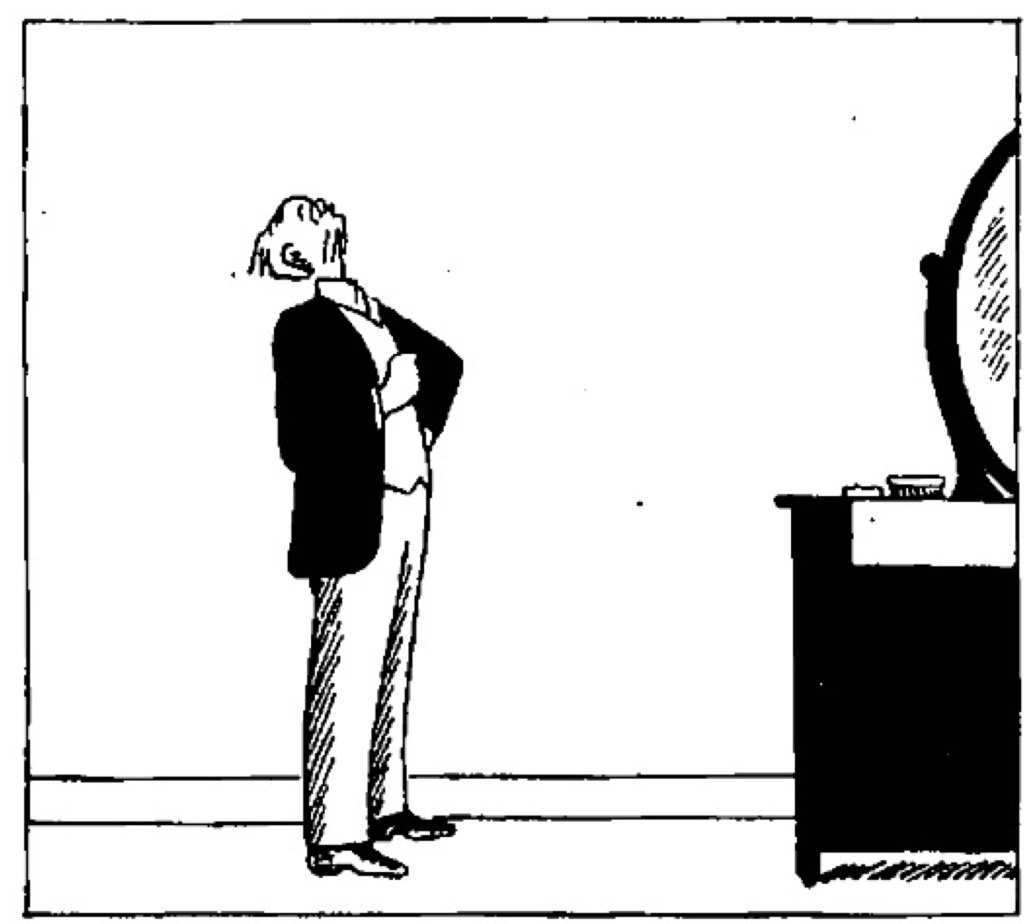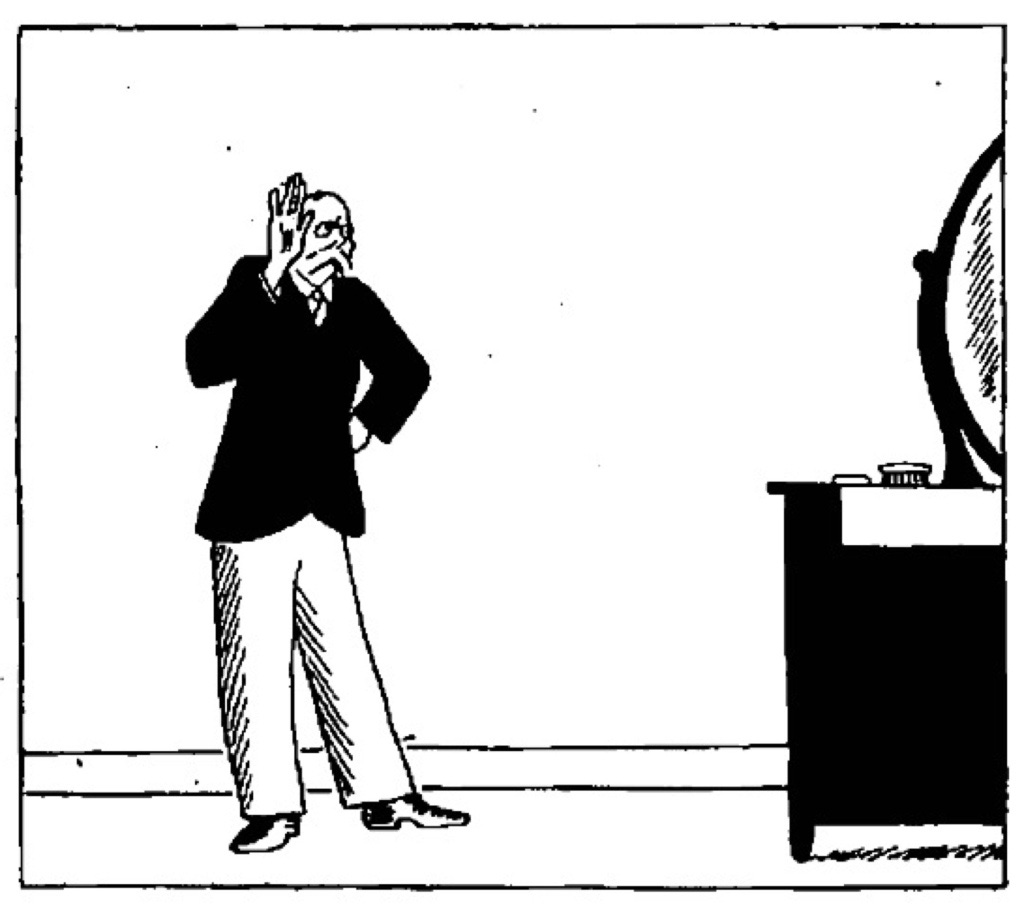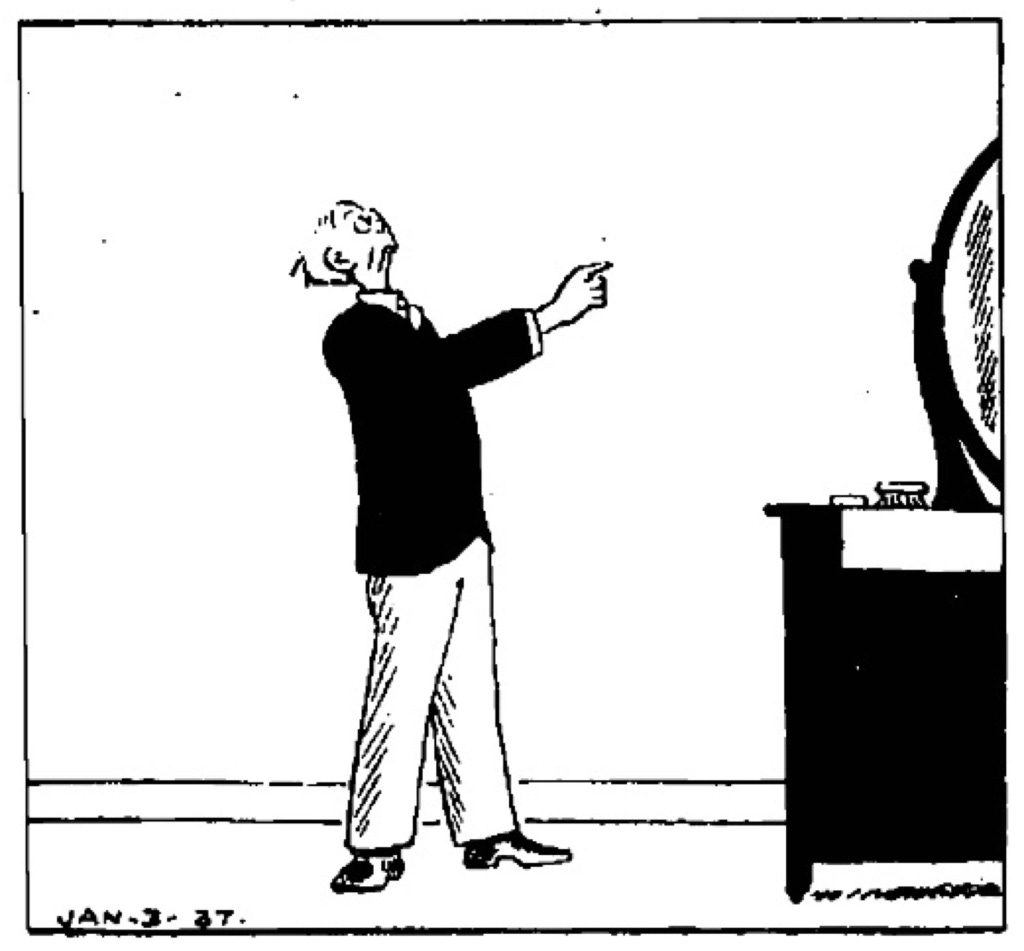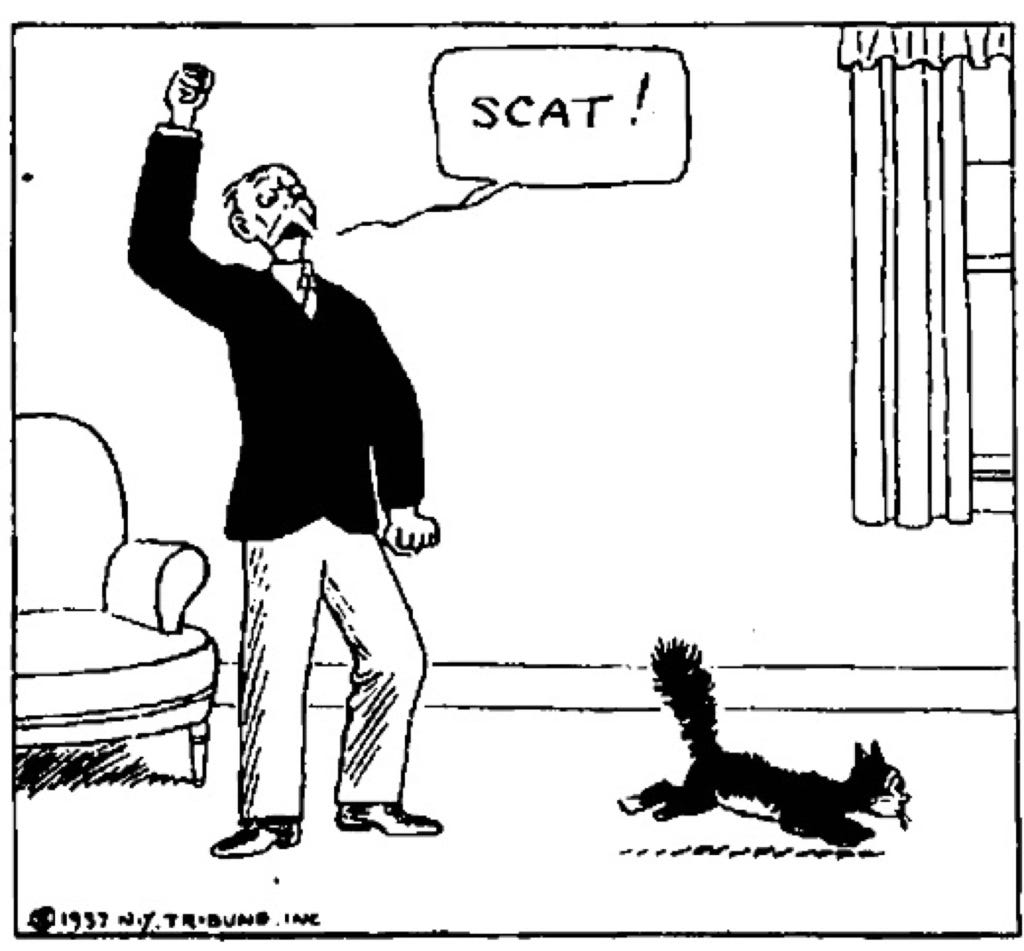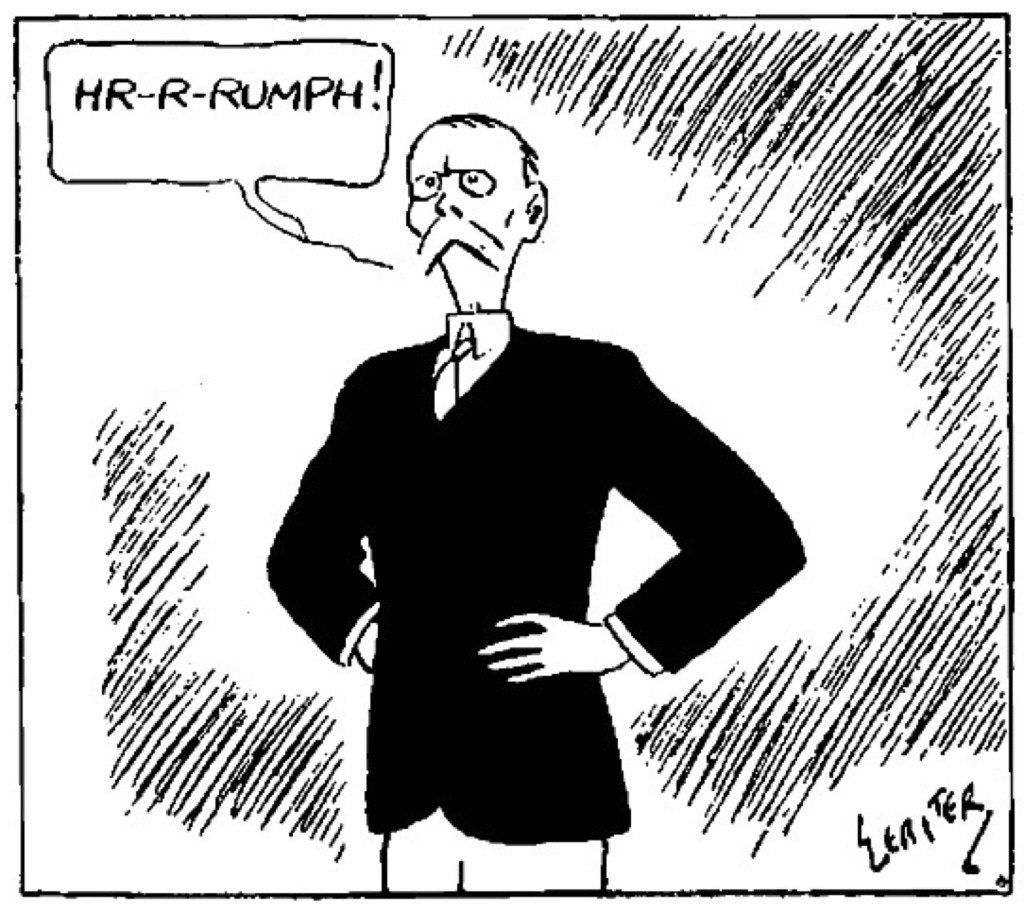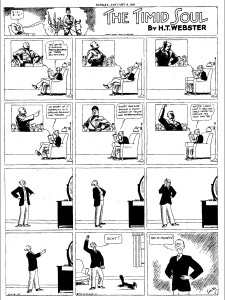The Timid Soul Toys With Fascism
The authoritarian strain in modern democracies has only heightened since I first posted this bit of cartoon wisdom several years ago. In 1937, H.T. Webster’s Casper Milquetoast (The Timid Soul) responds to Italy’s Benito Mussolini and Germany’s Adolph Hitler with his own fantasy of assertiveness. This 1937 vision of fascism’s psychological appeal to feelings of personal disempowerment is eerily relevant to the current ethos. Webster perceptively understands how the personal and political entwine around identity. And through Casper he renders it as a will to power that is at once frightening but also silly and petty. Webster even seems to understand something American liberals are only now grasping: the most effective response to bro-aviating fascist cosplay is ridicule.
But more than the prescience and enduring relevance of Webster’s 1937 strip, this sequence is a great example of the special powers of the cartoon arts. They can show, not just tell, rich ideas. Webster brings greater depth and impact to an insight through sequential illustration than we would get from the description of language alone. He shows us panel by panel the process of Casper responding to imagery and internalizing it into self-reflection – literally, in front of a mirror – mimicking the despot’s power. And then he twists it into satire: the fantasy of power congratulating itself by terrorizing an unsuspecting cat. Psychologists and political scientists no doubt have filled reams of analysis about how authoritarianism appeals to popular feelings of alienation and disempowerment. But somehow Webster brings it to life in a unique and impactful way here.
The beloved H.T. Webster (1885-1952) drew a range of political and slice of life cartoons across the 20s and 30s. Generally he was known for gentle satires of middle class life and nostalgic takes on bygone boyhood. His most famous contribution to the daily funnies (and American language) was The Timid Soul, which focused on the beleaguered and unassertive Casper Milquetoast who struggled with his own timidity in the face of an increasingly brash, intrusive America. In fact, Casper’s name entered into the language as the familiar descriptor of bland and weak. Casper’s attempts to break out of his own wimpy response to the world is the source of The Timid Soul’s light comedy.
